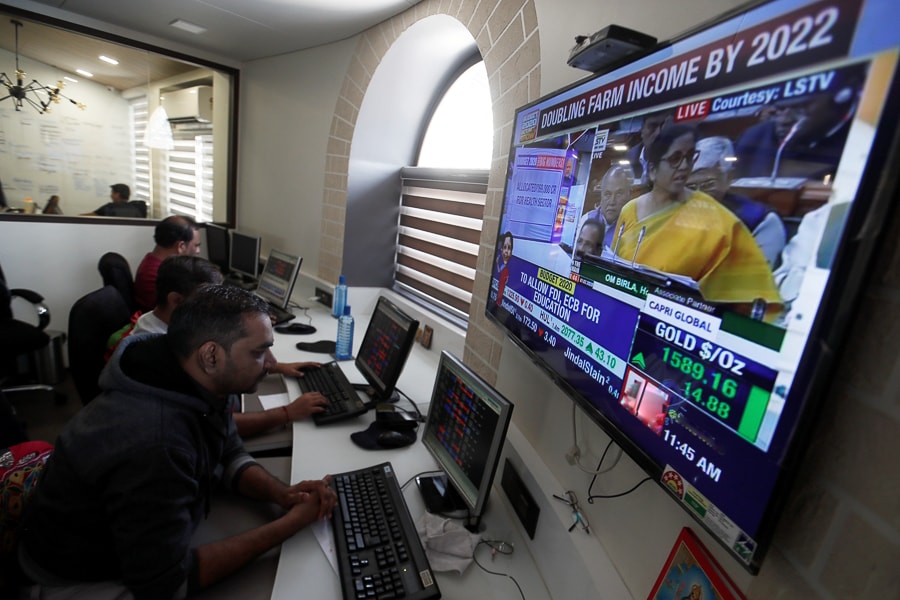Markets slump as Budget 2020 disappoints investors
Dividend distribution tax burden, no long-term capital gains tax relief sours sentiments


 Image: Francis Mascarenhas / Reuters[br]The stock markets gave a thumbs down to Minister of Finance Nirmala Sitharaman’s pro-middle class Budget speech, which was devoid of what investors wanted to hear there was no change to the long-term capital gains tax structure and no big push to boost consumption and stimulus.
Image: Francis Mascarenhas / Reuters[br]The stock markets gave a thumbs down to Minister of Finance Nirmala Sitharaman’s pro-middle class Budget speech, which was devoid of what investors wanted to hear there was no change to the long-term capital gains tax structure and no big push to boost consumption and stimulus.
Investors will also have the additional burden of having their dividend income taxed at the marginal income tax rate. The end result was a 987.96-point slump in the benchmark BSE Sensex 30 index, which closed at 39,735.53 points.
Removing the tax on dividend income had been a long standing demand of market participants. If globally companies were not liable to pay tax on it then the argument was that India shouldn’t be the odd one out. Foreign investors struggled to get a tax credit in their home countries for the tax on dividend paid.
This year the corporates finally got their way. Instead of dividends being taxed at a rate of 15 percent plus surcharge, and cess in the hands of the company, the onus has shifted to the entity receiving the payout. (Indian individual investors only paid tax if they received dividends in excess of Rs 10 lakh a year.) For foreign entities this would lower the incidence of tax, but for Indian individuals receiving dividends it will mean they will be taxed according to their income tax slab rate. In most cases this would result in an increase in tax paid.
“The lack of any big consumption push and stimulus was the clear dampener,” says Gautam Duggad, head of research (institutional equities), Motilal Oswal Financial Services. “The fiscal push was also missing.”
While Sitharaman was announcing the structural reforms the markets were about 0.5 to 1.5 percent down, but they slid further soon after the changes to the dividend distribution tax were announced. Fast moving consumer goods, banking, auto and engineering stocks were the hardest hit in the absence of any specific stimulus coming in. So while the Narendra Modi 2.0 avtaar continued to focus on the thrust towards agriculture, health care and education, there was just no mention of how the fiscal deficit target (which will go up in FY20) will be managed.
Vinod Nair, head of research, Geojit Financial Services agreed that the Budget was “below par”. There were very high expectations from the Budget, considering the economy is growing at an 11-year low of 5 percent and private consumption is at a seven-year low of 5.8 percent.
“Adding flexibility to fiscal deficit of FY20 is positive but extending the same to FY21 would have provided more confidence to the market,” Duggad says. He also added that the changes to the personal income tax changes were coming with a lot of riders of giving up exemptions, which disappointed the markets, with insurance sector being impacted the most.”
With this Budget behind us, for the stock markets the focus for investors will now shift back to the December-ended corporate earnings, the impact of coronavirus on the global economy, and how the global geo-political events unfold in the near future.
First Published: Feb 01, 2020, 17:41
Subscribe Now